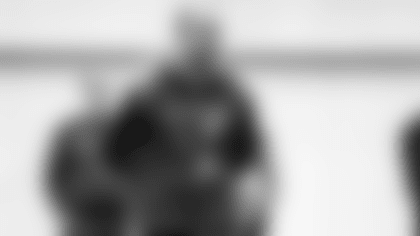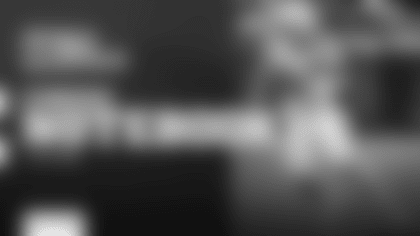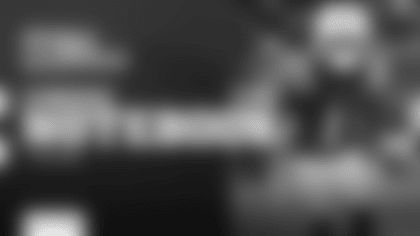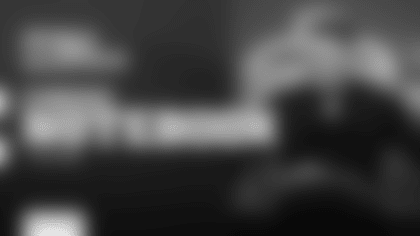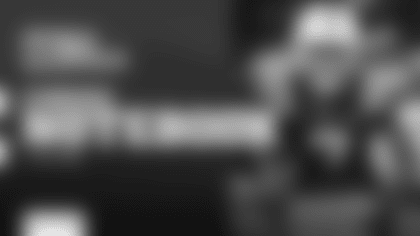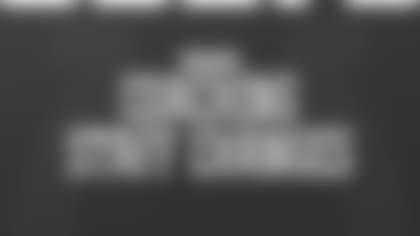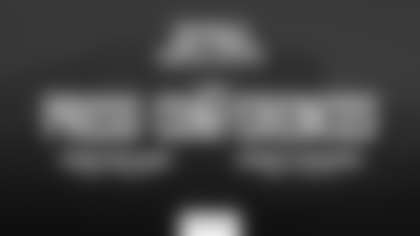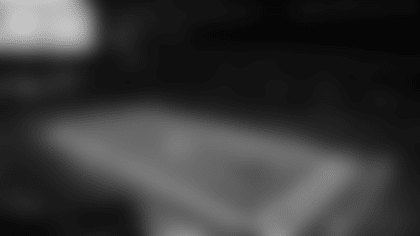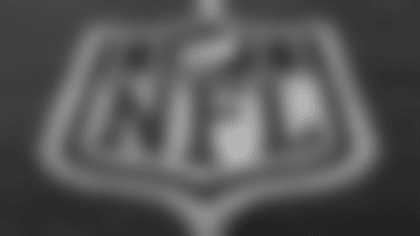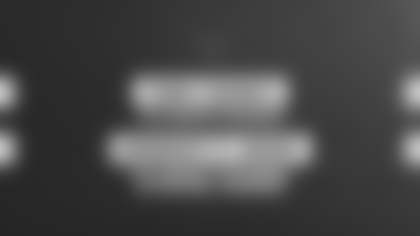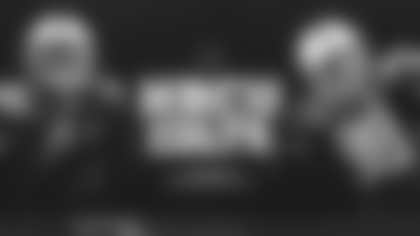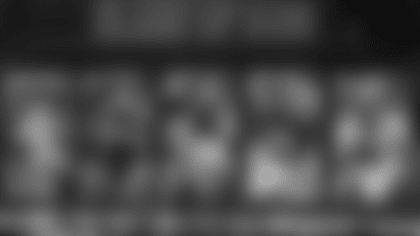Bill Polian is in his first season as Colts vice chairman after spending the previous 13 seasons as Colts president. Polian has a resume unique in the NFL. The only man to win NFL Executive of the Year six times, Polian in the 1980s built the Buffalo Bills into a four-time Super Bowl participant. In the mid-1990s, he built the expansion Carolina Panthers into a team that made the NFC Championship game in its second season, 1996. Since joining Indianapolis in 1998, he built the Colts from a 3-13 team in 1997 and 1998 into one that has made the playoffs 11 of the last 12 seasons, including AFC Championship game appearances after the 2003, 2006 and 2009 seasons, an AFC East title in 1999, AFC South titles in 2003, 2004, 2005, 2006, 2007, 2009 and 2010, Super Bowl appearances following the 2006 and 2009 seasons and a Super Bowl championship following the 2006 season. Each week during the season, in The Polian Corner, Polian and Colts.com will discuss issues pertinent to the Colts and the rest of the NFL.
The Polian Corner will run in two installments each week. Below is this week's first installment:
Q: Do you have any update on Peyton Manning?
A: No, there are no updates. I heard from him yesterday and he was doing fine. He's recuperating from the surgery and will be for a little while. His surgeon will outline a regime of rehabilitation, so he will be back in the weight room conditioning and doing what he can after some period of time, which is required for a healing process to take place. That's all there is to report right now. It seemed like every 10 minutes (on Sunday) I was fending off a rumor that was incorrect or some report that was totally and completely wrong last week just to set the record straight on some of the most egregious things. Peyton did have a physical before we signed his contract. We placed him on the Physically Unable to Perform list at the outset of camp, which by definition requires that the player must have failed his physical. The idea that a player who had just undergone surgery didn't have a physical examination is preposterous. Anyway, it was out there, just to set the record straight on that one. I've been asked many times, 'Was there anything we could have done to avoid this outcome?' The answer is probably close to 95 percent, 'No,' because there is always five percent of the unexpected that you don't know. In terms of turning over every stone, doing everything possible to get himself ready in terms of our doctors and our medical staff doing everything they can and could to help him get ready, then have this unfortunate situation develop soon after the Cincinnati game is just a shame. It's just the way life is. Not everything is predictable. Not everything can be reduced to a sound bite. Not everything is neat and clean. This is one of those situations that just cropped up, and there wasn't anything anyone could do to prevent it anymore than there is anything that anyone can do to hasten the healing process. Where we sit right now is that he is healing and recuperating from the operation. That will take some time. When that takes place, hopefully, it will go according to plan and be complete. We're still left with the question of how soon the nerve in the arm which essentially controls the triceps muscle will regenerate. We don't know any time frame on either of those situations, and there's no point in speculating upon it.
Q: He's still on the active list. If you have a lot of injuries like last year, how long can you save that spot? Forever?
A: We saved the spot for Bob Sanders last year all the way up to week 12, maybe even beyond that because the prognosis, which is just that – it's a guesstimate the doctors give you, it's not cast in concrete – was that Bob had a chance to make it back by the end of the season. That did not occur. What I've said to Peyton and what we've said publicly is that we will leave him on the active roster as long as the doctors tell us there's a chance for him to come back. Now, that being said, it bears very, very strong emphasis that he will not be allowed back on the field until the doctors are satisfied that he's 100 percent and ready to go, regardless of what occurs with the season or doesn't occur with the season. His long-term health is what the most important thing is here. It's been that way from Day One. We constantly said to him, 'If you're not ready to go, you're not going to be allowed to go out there.' I'm sure as soon as he starts to feel better, he'll be the same here. That's what makes him such a unique individual. The bottom-line is, when the doctors say he is ready to go, he will be allowed to resume activity. We'll cross the bridge regarding the active roster spot at that time when the doctors give us a definite feeling of when and if he will be back this season.
Q: Yesterday, not the outcome you wanted, but we've been here before just last year.
A: It was a very similar defensive situation from a year ago. We didn't get their run stopped. As a result, they had a fair day throwing the ball. It's rare that you win the turnover battle in a game and lose but when have special teams errors like we did yesterday and you have turnovers deep in the red zone, it's going to negate the fact that we created three turnovers. The bottom-line is that is was an ugly game, not one that you would have wished for. Certainly we expected a very difficult game, that's why the schedule-maker scheduled it the way he did. That's not a surprise. There was, as Coach Caldwell said, any number of little things that went wrong throughout the day in all three phases of the game that caused us to derail offensive drives. For example, when we were running the ball very well, we got a hurtful penalty. We had a number of different busted assignments, particularly on the offensive line that didn't allow us to get any continuity. Defensively, we didn't get the job done against the run, or consistently against the pass, although we did get the turnovers. Then we allowed a punt return touchdown, which is a cardinal sin. You can't do that and win usually in the National Football League. All in all, (it was) a less than stellar performance. The good news is we can correct the vast majority of those mistakes, and we will. The fact of the matter is that we have to adjust tactically and to some small degree schematically to having Kerry (Collins) at quarterback and not Peyton (Manning). We'll be a little bit different team in terms of the way we look, but we have to be a consistent team in the way we approach things. We were not consistent yesterday, so we weren't consistent mentally or physically. There were too many busts and too many situations where we allowed them to make plays. That has to change, and it will. I was told Bill Parcells made a great statement yesterday (Sunday) that's absolutely true, 'We now have a built-in excuse for losing.' The bottom-line is we won't accept that. That's not an excuse. We don't make excuses around here. We're playing the hand that's dealt us, and we're going to play it to the best of our ability. We're not going to make excuses. We're not going to hang our heads. We're going to get back to work and as Jim Caldwell said, 'Six inches at a time.' That's how you improve every week, every day, six inches at time, get a little bit better. Everybody has to take that approach. If we do, over the long haul we'll become a better and more consistent team, and that leads to wins.
Q: What was the reasoning behind keeping Curtis Painter and releasing Dan Orlovsky?
A: We felt that on balance over the preseason when you judged both players' performances that Curtis played a little bit better, particularly in the game against Green Bay where he went with the first unit for the better part of a half and played against a very good defense and did well. We felt Curtis played better over time, took care of the ball better, improved over the course of the preseason. In Dan's defense, he didn't have an off-season with us because of the labor situation. Had he had a full off-season, things might have been different. We could only judge based upon what we knew of the work both men had done during preseason. We felt, even though it a close call, Curtis was the better player, so we kept it that way.
Q: What was your impression Kerry Collins' play and was there any consideration of putting in Curtis Painter?
A: No. Jim Caldwell was asked that today and the answer was no. We felt Kerry played relatively well. Keep in mind he's new to the club, he's new to the receiving corps, his ball, believe it or not, is a little bit harder than Peyton's. They have to get used to catching it. There are some timing issues that will improve over time. We recognized that was going to be the case. The two situations where we had the sack and the sack-fumble, it simply was a missed blocking assignment and Mario Williams got turned loose. No one can survive that. He's (Collins) very lucky he survived that physically. All in all, his performance, given the circumstances which we understood fully, was pretty good. Jim didn't feel there was a need to do anything but try to keep taking those six-inch steps and keep getting better each snap.
Q: In actuality, Kerry's quarterback rating was better than Matt Schaub's?
A: It was and that's lost in all the sound and fury over the score, and the quarterback rating doesn't tell you everything. On balance, when you looked at the tape and recognize he's working with a new group of guys and he has to get used to them, and he has to get used to a new system which is rather complex, he did a pretty good job.
Q: On Kerry Collins being a good signee for all the quarterbacks out there.
A: I agree with you. Kerry's a hard-working guy. He does take it very seriously. He wants to win. He's very, very tough. If you had the opportunity like we did yesterday to see him hang in the pocket and make a couple of throws, notably the touchdown catch and the one that just missed to Austin (Collie), there were bodies flying all over the place. I've always said in response to questions, you could take two F-16s and you could run them by his ears time and time again and he won't even notice that they're there. He's a very, very cool customer in the pocket. He's going to hang in and make plays. He's a courageous guy, tough guy, hard worker, very smart, he'll get better. It just takes a little time. Unfortunately when the regular season begins, time is a precious commodity. As long as we keep working to get better every day the end result will show up positively over time.
Q: What has it been watching his progression over the years?
A: I've been blessed to have been associated with a number of great quarterbacks in my career. That's just good fortune. Kerry has become much more of a complete quarterback. He understands the game. He understands defenses. Believe it or not, he doesn't throw the ball with any less velocity or any less accuracy than he did when he was a rookie. It's absolutely amazing. Jim Caldwell said when we were bringing him in, he didn't feel there was any issue with him arm. Jim said Kerry will be one of those guys who will be playing catch on the front lawn at age 65. God blessed him with an incredible arm. The throw he made to Reggie (Wayne) was a great catch, but it was also a dart. He's grown in the job as any quarterback would over time in the NFL. The courageousness and the ability to throw the football is really not a whole lot different than when he came in many years ago.
Q: You said Peyton Manning would not get on the field until he was healthy. Is that true for all your players?
A: The answer to your questions is yes. I will outline the protocol. In a normal injury situation, the doctors will make their determination based on various diagnostic tests, MRIs, X-rays, clinical observation, whatever it may be. If it involves a surgery, they will prescribe rehabilitation. The player must go through the rehabilitation process. When he is finished with the rehabilitation process, he then must go through a strength and conditioning evaluation. He has to pass that before he's allowed back to practice. We do not want to bring players back who are not in good condition, because they've been laid off and then throw them right into practice and coaches are asking them to go 100 percent. You sometimes can have re-injury occur there, or new injuries crop up. Our process is medical evaluation, rehabilitation and then strength and conditioning testing before any player can get back out on the field.



